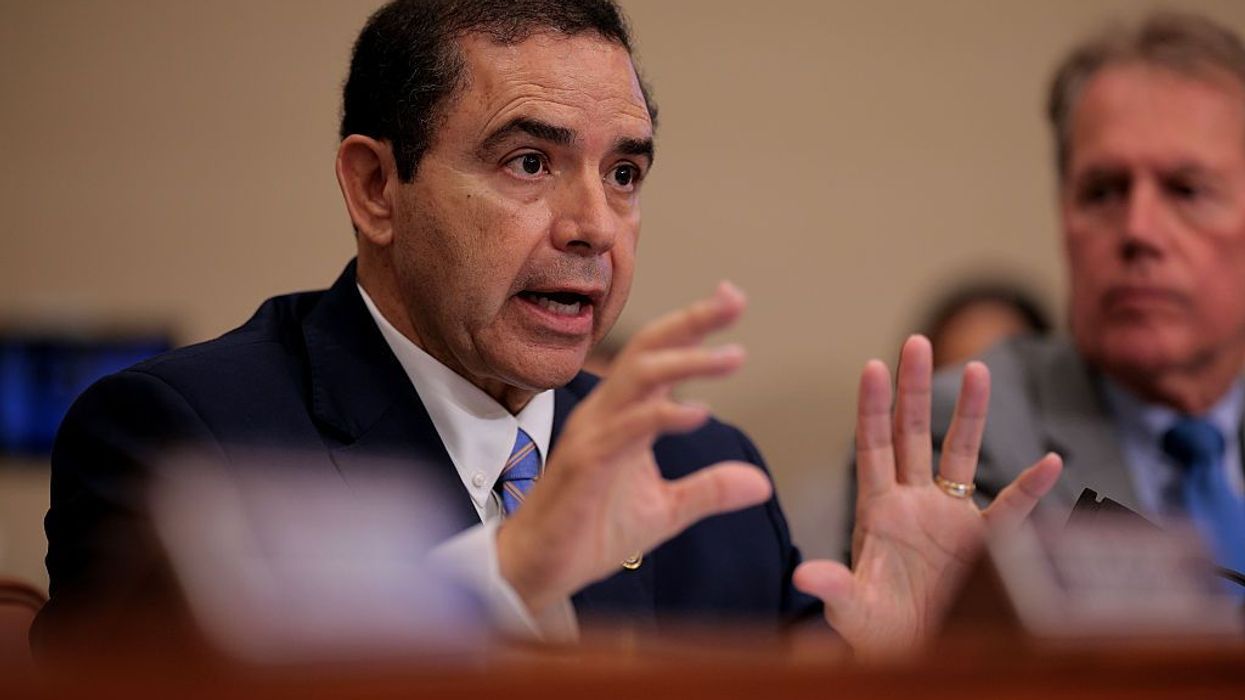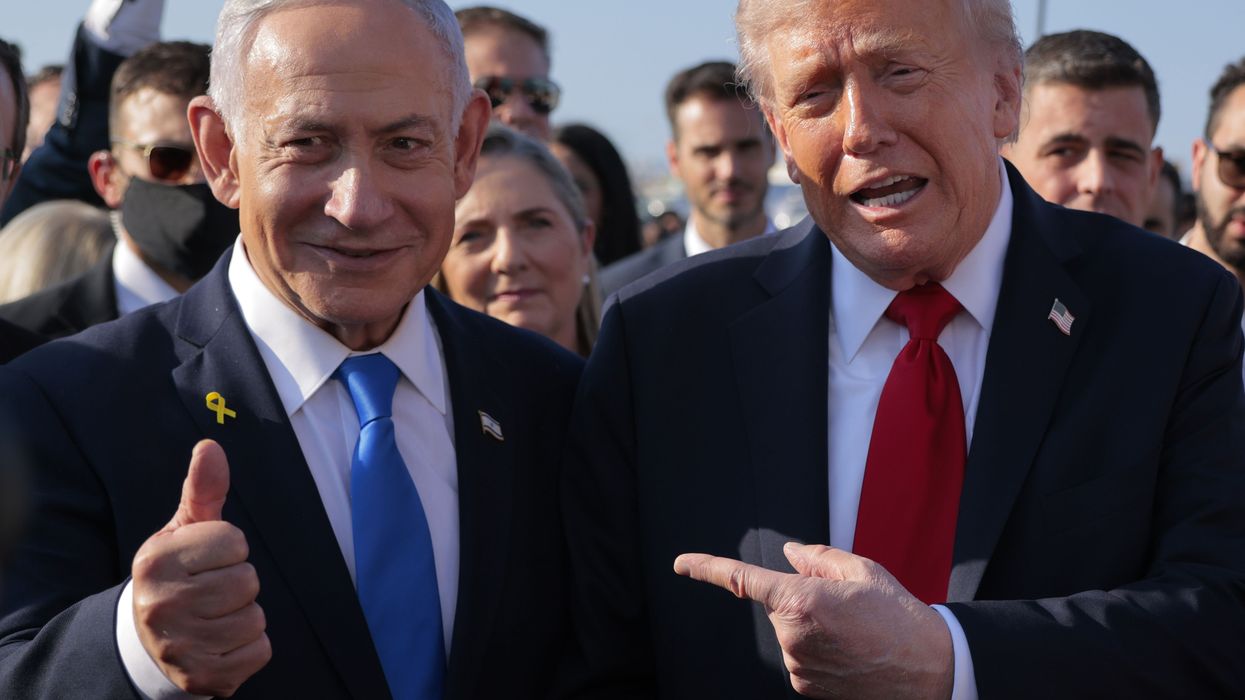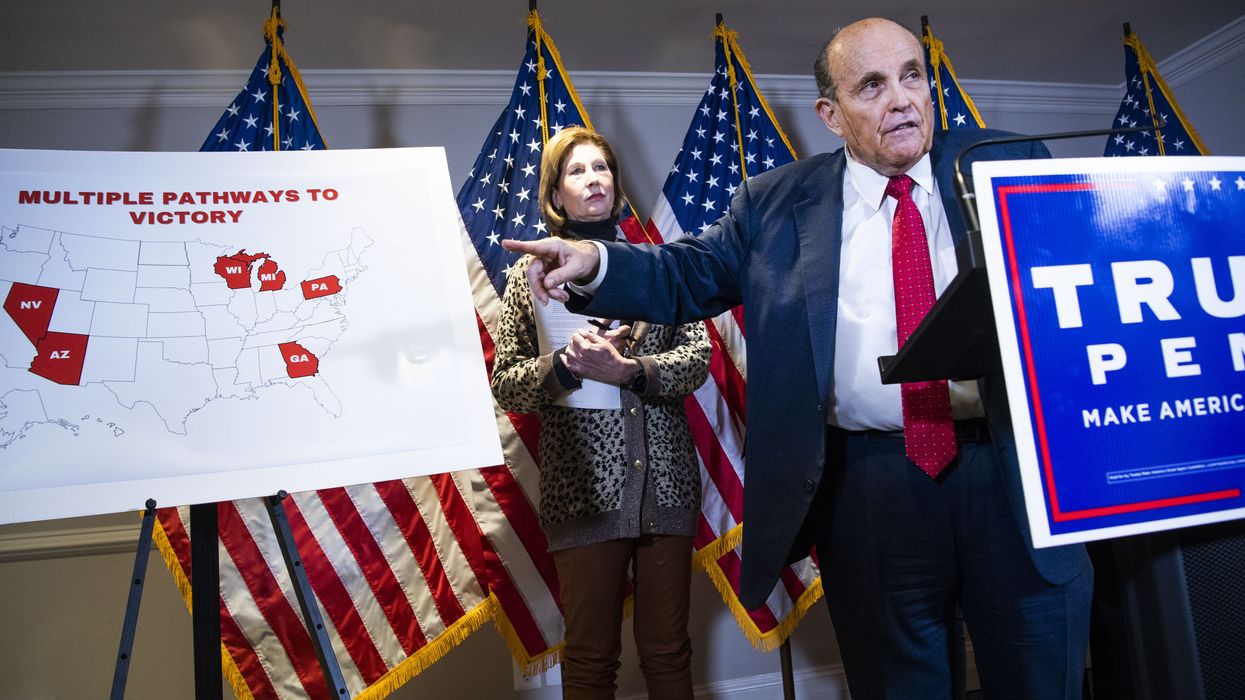‘This Is Disgusting’: Trump Pardons Henry Cuellar After Bribery, Money Laundering Charges
"Henry Cuellar, the last anti-choice Democrat in the House, sold out his own community for bribes from a foreign government and oil corporation," said Sunrise Movement in condemning the Trump pardon.
President Donald Trump on Wednesday announced that he was pardoning Democratic US Rep. Henry Cuellar, who was indicted by the Department of Justice in 2024 on charges of bribery, conspiracy, and money laundering.
In justifying the pardon, Trump baselessly claimed that the Texas lawmaker was the victim of vindictive prosecution by former President Joe Biden in supposed retaliation for Cuellar's criticisms of Biden's immigration policies.
"Henry, I don't know you, but you can sleep well tonight," Trump wrote at the end of his pardon announcement. "Your nightmare is finally over!"
According to federal prosecutors, Cuellar and his wife, Imelda Cuellar, engaged in a corrupt scheme that involved taking $600,000 worth of bribes from a fossil fuel company owned by the government of Azerbaijan in exchange for desired policy outcomes.
"The bribe payments were laundered, pursuant to sham consulting contracts, through a series of front companies and middlemen into shell companies owned by Imelda Cuellar,” prosecutors alleged in their indictment. “In exchange for the bribe payments to Imelda Cuellar, Henry Cuellar agreed to perform official acts in his capacity as a member of Congress, to commit acts in violation of his official duties, and to act as an agent of the government of Azerbaijan."
As noted by congressional reporter Jamie Dupree, Cuellar is the twelfth current or former member of Congress whom Trump has pardoned, and is the first one to receive a pardon without having been criminally convicted.
Cuellar is also just the second current or former Democratic member of Congress to receive a pardon from Trump, who also pardoned former Illinois Gov. and ex-US Rep. Rod Blagojevich, who was found guilty in 2011 on multiple corruption charges related to his attempt to sell a US Senate seat that had been vacated by Barack Obama after his election to the presidency in 2008.
Some progressives expressed revulsion at Trump's pardon of Cuellar, one of the most conservative members of the House Democratic caucus who has nonetheless been defended by party leadership despite criminal charges leveled against him.
"This is disgusting," wrote Sunrise Movement's official X account. "Henry Cuellar, the last anti-choice Democrat in the House, sold out his own community for bribes from a foreign government and oil corporation. Then he cozied up to Trump for a pardon while the Democratic establishment stood by and watched."
Melanie D'Arrigo, executive director of Campaign for New York Health, speculated that Trump pardoned Cuellar as a reward for stifling past progressive policy ambitions.
"Henry Cuellar is part of the Problem Solvers Caucus—a 'bipartisan' group where the Democrat members repeatedly undermine the Democrats' agenda to help Republicans, while taking campaign donations from Republican billionaires," she wrote. "This is a 'thank you.'"
Emma Vigeland, cohost of "The Majority Report" talk show, wondered if Trump had worked out an explicit quid pro quo with Cuellar ahead of the pardon.
"Cuellar is an anti-abortion Democrat who will likely switch parties now that Trump has gotten him out of a dozen bribery and money laundering charges," she wrote.
However, the Texas Tribune reports that Cuellar on Wednesday filed to run for reelection as a Democrat, which for now casts doubt on him switching parties as a condition of getting pardoned.


